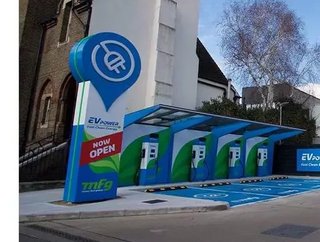Motor Fuel Group to pump £400 million into electric charging

Independent forecourt operator Motor Fuel Group plans to invest £400 million in EV charging points across 500 UK sites in the next decade.
The investment will cover 3,000 'ultra-rapid' 150KW charging hubs - between four and eight chargers will provide 100 miles of range in around 10 minutes - and 350KW chargers by 2030.
This year MFG will build EV charging hubs at an additional 40 sites, offering over 200 150kW EV Chargers, initially focusing on major trunk roads and urban areas. In London alone, MFG’s planned roll-out will treble the current number of open network of 150kW chargers. From 2022 onwards, MFG plans to build at least 50 additional EV charging hubs per year, with a significant number across the road network.
On route charging will be particularly important for drivers who do not have access to ‘at home’ charging. In England, over 60% of dwellings in cities and urban areas do not have garages or other off-road parking provisions, and must rely on electricity from publicly accessible networks.
The infrastructure upgrades will coincide with a broader £50 million upgrade programme providing broader grocery convenience products, food-to-go brand partnerships, online delivery lockers and business break areas and facilities.
Battery EVs accounted for 6.6% of all new car registrations in the UK in 2020, up from 1.6% in 2019. To meet Government targets, 100% of new registrations must be battery electric by 2035. To achieve full electrification, significant private and public infrastructure investment will be required.
While new EV registrations are rising dramatically, there are around 38m licenced combustion engine vehicles on UK roads today. MFG has installed EV chargers at 108 of its sites through third parties and will self-fund, build, and operate its own EV charging hubs.
As and when car battery technology allows, MFG intends to upgrade a significant number of Ultra-Rapid 150kW EV Chargers to even more powerful 350kW chargers.
Over the coming decades, MFG will operate a dual fuel strategy. It will continue to provide existing fossil fuel infrastructure whilst rolling out EV charging hubs while continuously upgrading its nationwide network of industry-leading travel retail destinations.
In reality, millions of motorists will require fossil fuels long after the 2030 ban on the sale of new petrol or diesel cars. MFG is committed to supporting these motorists by providing necessary fossil fuel infrastructure, while enabling their transition to clean fuels.
William Bannister, CEO, MFG, said its planned £400 million investment in this vital infrastructure will help keep UK motorists on the move, and essential retail will support local communities and the economy. "I am looking forward to engaging with Government to ensure this investment best meets the national EV infrastructure requirement to help us all make a contribution to ensuring Britain meets its net zero target by 2050," he said.
Momentum in EV deployment and charging is building globally. McKinsey estimates that the US will need $11 billion of capital investment by 2030 to deploy the 13 million chargers needed for all its EVs.






